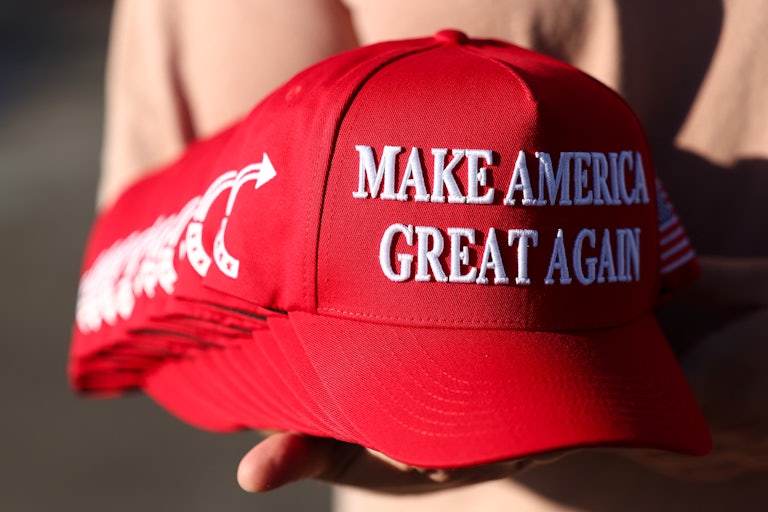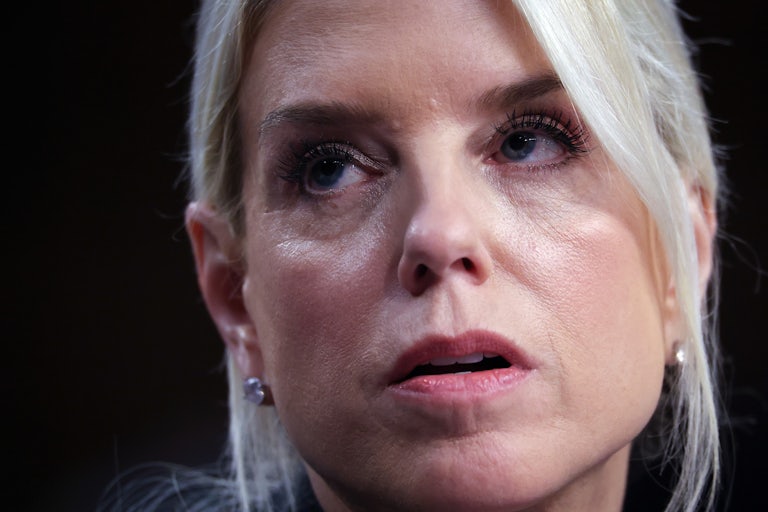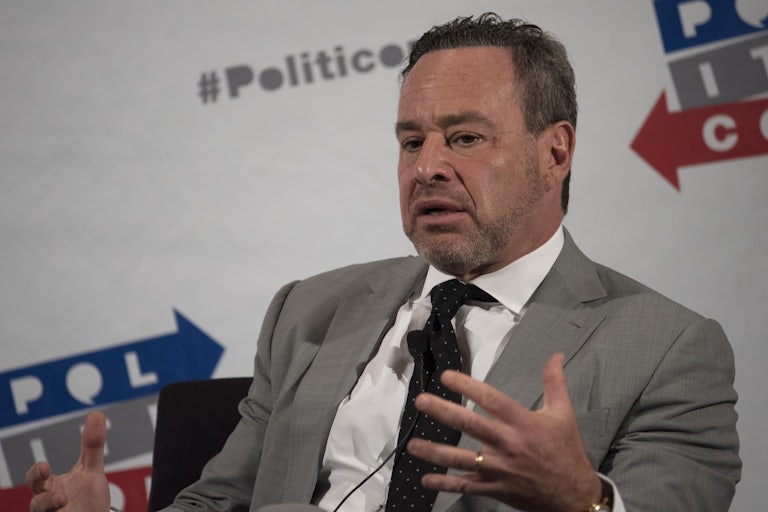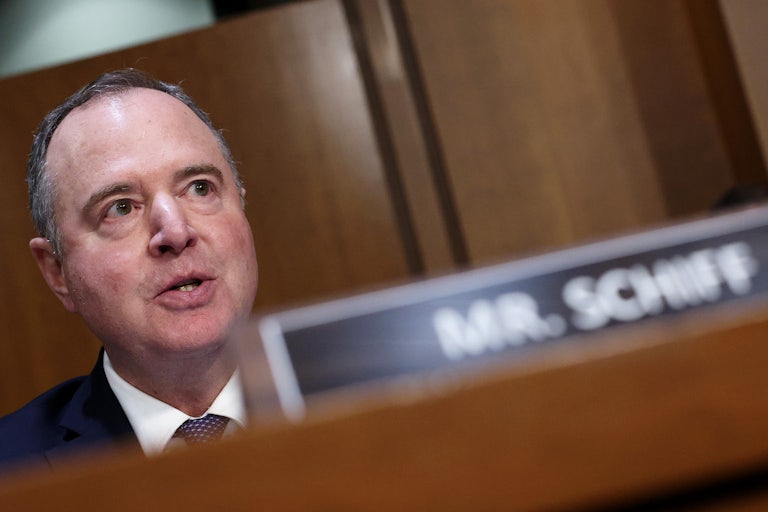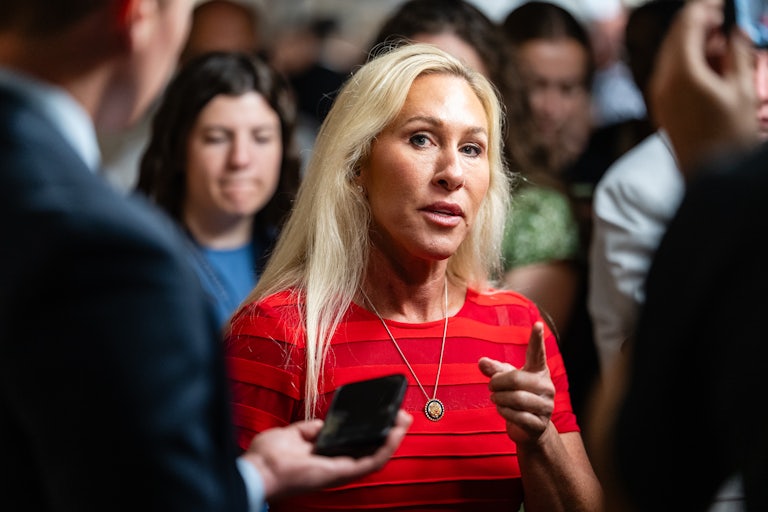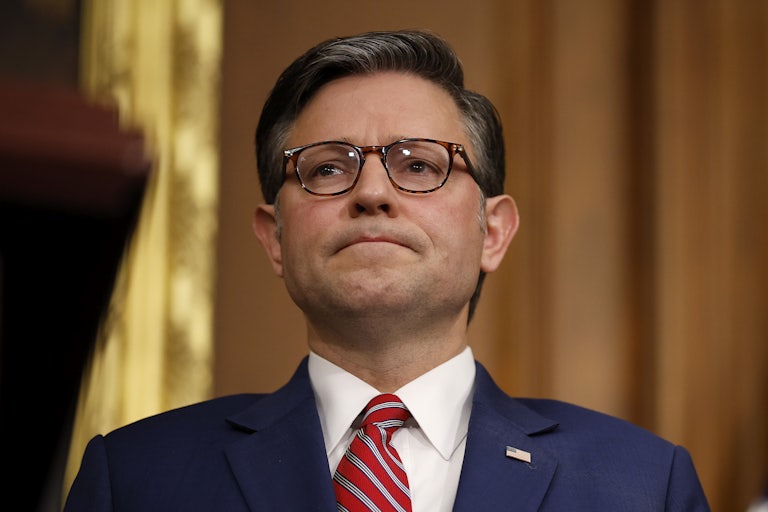Trump Literally Brags About Taking Away People’s Free Speech
Donald Trump has been saying the quiet part out loud for some time now.
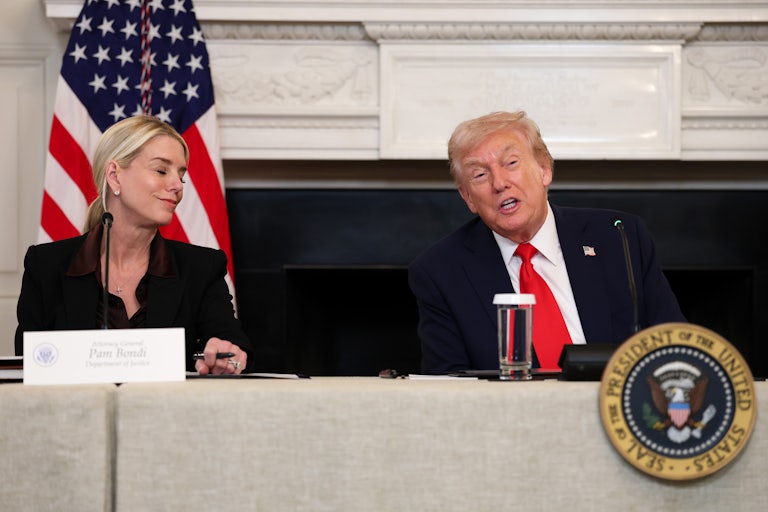
“We took the freedom of speech away,” President Donald Trump boasted in his opening remarks at his “antifa roundtable” Wednesday.
The remark came as Trump touted an August 25 executive order seeking to crack down on the practice of flag burning, a form of protest that the Supreme Court has previously ruled is protected by the First Amendment.
“We’ve made it a one-year penalty for inciting riots. We took the freedom of speech away, because that’s been through the courts,” Trump said before making other addled statements about his unconstitutional stance on flag burning.
Trump: "We took the freedom of speech away because that's been through the courts and the courts said you have freedom of speech, but what has happened is when they burn a flag it agitates and irritates crowds." pic.twitter.com/maRI2PKWlV
— Aaron Rupar (@atrupar) October 8, 2025
It was a jarring admission—perhaps a Freudian slip—from a president who is, indeed, evidently intent on eliminating free speech.
Supreme Court precedent firmly establishes flag burning as a form of First Amendment–protected symbolic speech. And for what it’s worth, Trump’s executive order did not specify a one-year jail sentence. It did, however, direct the attorney general to prosecute flag burners under existing laws—this being a tacit acknowledgment that his desired ban would unambiguously run afoul of the First Amendment.
After claiming credit for rolling back freedom of speech, the president went on to seemingly admit that he cannot completely ban flag burning, but expressed his hope to clamp down on the practice—which he says stirs up violence, as if by magic—nonetheless.
“What has happened is, when they burn a flag, it agitates and irritates crowds—they’ve never seen anything like it—on both sides, and you end up in riots,” he said. “So we’re going on that basis. We’re looking at it not from the freedom of speech, which I always felt strongly about, but never passed the courts.”

